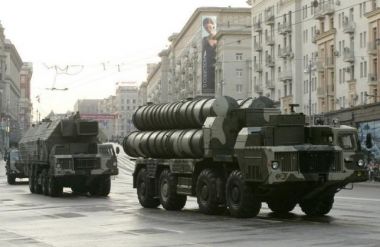Iran admits it threatened to harm top UN official if he leaks secret nuke side deals

The charge made by some members of the US Congress that the US-backed Iran nuclear deal is flawed has just been bolstered by the revelation by Iran itself that its agents coerced and threatened to physically harm the head of the United Nations' International Atomic Energy Agency (IAEA) if he publicly discloses the secret side deals made by Iran with the IAEA.
IAEA Director General Yukiya Amano met with members of the US Congress recently but reportedly kept mum on the secret side deals when asked about them by American lawmakers for fear of his own safety, a spokesman of Iran's Atomic Energy Organization (AEOI) admitted.
Before he flew to the US to meet with US lawmakers, Amano received a letter from Tehran meant to ensure he did not reveal specific information about the nature of nuclear inspections that were agreed upon, according to Iranian AEOI spokesman Behrouz Kamalvandi.
The report said in a letter, Iran threatened to harm Amano from disclosing information on nuclear inspections going forward, said Iranian AEOI spokesman Behrouz Kamalvandi.
According to Fox News and The Washington Free Beacon, Kamalvandi admitted that Tehran issued a personal warning to Amano.
"In a letter to Yukiya Amano, we underlined that if the secrets of the agreement (roadmap between Iran and the IAEA) are revealed, we will lose our trust in the Agency; and despite the US Congress's pressures, he didn't give any information to them," Kamalvandi said on Monday in a meeting with Iranian lawmakers, according to a report by Tehran's Fars News Agency.
"Had he done so, he himself would have been harmed," he added.
The deal aims to prevent Iran from acquiring nuclear weapons in exchange for lifting of UN Security Council sanctions on Iran including on trade, finance, technology and energy. Some $150 billion of frozen Iranian assets will also be turned over back to Tehran.
Iran previously said the US is prohibited from getting the details of its nuclear inspections agreement with IAEA.
It also refused to sign a document entitled Additional Protocol that will force Iran to disclose information of its nuclear programme to IAEA that will confirm that the country is not making a secret weapons programme.
A source was quoted by Fox News as saying that Iran's refusal to sign the documents gives it up to eight years to threaten IAEA.
"The IAEA desperately wanted the Iranians to ratify the Additional Protocol as part of the deal to lock them into formal obligations that would actually be permanent," the source said. "The Obama administration failed to win the concessions, and instead Iran got to promise to ascend eight years from now."
Russia selling missiles to Iran
Meanwhile, despite the existing global sanction against Iran on arms shipment, Russia is reportedly willing to sell to Iran some of its S-300 surface-to-air missiles.
"We have long expressed our concerns over reports of the possible sale of this missile system to the Iranians," said Pentagon spokesman Capt. Jeff Davis.
While the US State Department said that the sale of the S-300 is not prohibited under the UN sanctions on Iran, it opposes it. "We certainly object to it," department spokesman John Kirby said.
A Reuters report said Iran and Russia will sign a contract for four S-300 missiles soon.
"The text of the contract is ready and our friends will go to Russia next week to sign the contract," said Iran Defence Minister Hossein Dehghan.
"This is a very capable weapons system that can bring down US or Israeli jet aircraft," a US defense official described the weapon.
As early as April when Russia announced the sale, the Obama administration had already objected.
"The United States has previously made known our objections to that sale, and I understand that Secretary Kerry had an opportunity to raise these concerns once again in a recent conversation with his Russian counterpart," said White House Press Secretary Josh Earnest.











